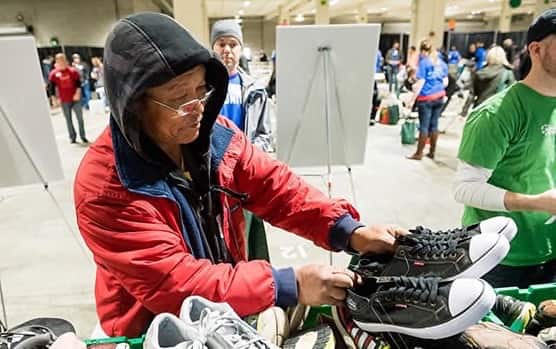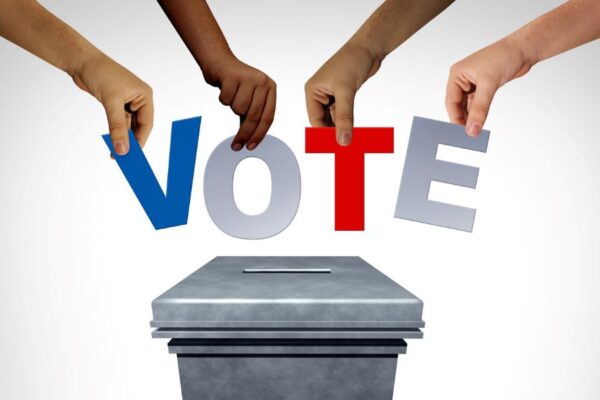Homelessness: A Shift From Who to What
Seattle’s homelessness crisis continues. It’s been 16 months since the City of Seattle declared the crisis. At our recent Community Resource Exchange we met 1,125 people who were homeless and in need of affordable housing, basic health care, even shoes. It’s the 13th year we’ve been hosting the Community Resource Exchange.
Yeah, yeah, you say. Nothing’s changing, and now the crisis is too big to fix.
Many are still trying to get their heads around the scale of the problem. It’s hard to digest the fact that more than 4,500 people sleep outside in King County on any given night.
People often ask questions along these lines: Aren’t homeless people moving here because of the services? Aren’t they all addicted to drugs? Can’t they just get jobs and things will be fine, problem solved?
Think you know who’s homeless?
Of course there’s a need to understand who is homeless so that solutions can be put in place that help people, not just shift the statistics. But sometimes questions about who can get in the way of moving forward. We can get stuck and miss the reality that people are living under I-90 for days or decades like Ed, and their tent isn’t because they’re on a fun relaxing camping trip.
Survey says…the stereotypes are wrong
The City of Seattle recently did a survey of 1,000+ people who are homeless. It’s consistent with previous research. But if the ones above are the types of the questions you’ve asked—or heard or nodded and yeah-really-ed about—then some of the numbers may surprise you:
- People who are already homeless aren’t moving here in droves. Just 15% were living in another state or country when they became homeless. That is consistent with numbers we’ve been reporting for years, and does not seem to be increasing.
- Most have recently been stably housed. 40% owned their home or were renting on their own or with a partner before something changed in their lives and they lost their housing.
- Many are educated. 12% have a college degree and 23% have some college.
- Drug use isn’t as rampant as many think. While 12% report using heroin and 17% report using meth, 45% report no drug use at all.
- Domestic violence takes a toll. Almost 42% reported they had been impacted by domestic violence. For youth under age 25, that number was 51%.
- Mental illness is an issue. 24% are diagnosed as bipolar and 9% cite schizophrenia.
Foreclosures and layoffs. Some college before going a different route. Mental health struggles. Frankly, it sounds like any of our own families. People close to us who are just like us.
It’s people like Justin, thankful for getting reemployed and wanting to go into nursing. Like Nikita, who’s grateful for an affordable living situation for her and her two girls.
Simply put, the “they choose to be homeless” theory gets the boot. 93% of people surveyed said they would move inside if safe, affordable housing were available. If it were just available.
People who are homeless have had something happen in their lives that has pushed them into homelessness. It’s not a path they chose from a life-coach session because it sounded like freedom or wanderlust. That’s 9 out of 10 who want a different situation. They want a roof that’s two-by-fours and asphalt shingles overhead rather than nylon and a different kind of asphalt underneath. Period.
It’s a homelessness crisis. What can you do to help?
People want to be housed. They want to work. Our job is to band together so that those things can happen. Let’s acknowledge that people who are homeless are not all that different from anyone else and let’s get busy on fixing the problem:
- Help prevent homelessness by encouraging your legislator to preserve the Housing Trust Fund: keeping more than 5,700 units safe, healthy, and affordable homes across Washington.
- Volunteer your time and hands to help people struggling in this crisis.
- Support the issue financially so nonprofits and our partners can ban together to turn the homelessness crisis around in a smart way that actually works.
Our recent Community Resource Exchange provided services in one location for 1,125 people who are homeless. At this event we overheard a young volunteer, about 10 years old, say, “Everyone’s so nice. They don’t act homeless. They act just like you and me.” That is, of course, because they are.





Comments